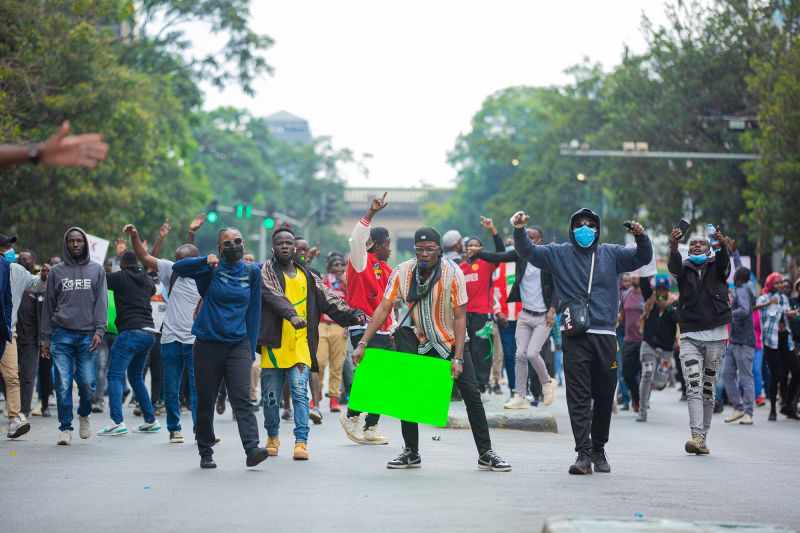Body of the Article:
The political landscape of Kenya has recently been rocked by heated disputes over a proposed tax hike, leading to widespread protests across the country. These demonstrations, which are mainly targeted at the lawmakers’ proposed tax increment, have birthed an anxiety-ridden atmosphere that is taking a toll on the nation, with grave concerns springing forth particularly over missing protesters.
As fiscal pressure continues to mount amid struggling economic realities, the Kenyan government aims to introduce a controversial tax hike. Critics argue that this measure will further strain ordinary citizens, who are already grappling with the harsh economic impact of the Covid-19 pandemic. Consequently, this proposal has ignited public outrage, culminating in numerous protests in cities across Kenya.
The protests, although largely peaceful, have sometimes taken a violent turn, leading to confrontations between law enforcement agencies and demonstrators. The volatility of these situations prompts concerns about human rights violations, especially with growing reports of missing protesters.
Amnesty International and various other human rights agencies have voiced their concerns over these disappearances and alleged human rights violations. These organizations have stressed the essential need for responsible handling of demonstrations by law enforcement, and the paramount importance of protesters’ right to express their views peacefully.
The Kenya National Commission on Human Rights, the government’s leading civil rights body, has also reported receiving numerous complaints relating to arbitrary arrests, reported disappearances, and even cases of brutality linked to the tax hike protests. The alleged disappearances of protesters amplify worries about the state’s response to these demonstrations.
Investigation into these cases reveals an alarming pattern. Several witnesses and families of the missing affirm that their kin attended the protests and have since been missing. Desperate pleas from affected families have echoed throughout the country, begging for their loved ones to return home safely.
Furthermore, these alleged disappearances and reprisals against protestors are believed to create an atmosphere of fear and intimidation. The fear of detention or disappearance can skew genuine public opinion, as people may feel unduly pressured to withdraw from protests and dissuade others from participating for fear of retaliation.
Disconcertingly, past instances of tax-related protests in Kenya have also been characterized by law enforcement’s heavy-handedness, fueling apprehensions of a repeat scenario. To mitigate these concerns and to assure the citizens of their right to protest freely and peacefully, it is crucially important that the Kenyan government undertake transparent investigations into allegations of enforced disappearances and holding those accountable who are responsible.
In summary, the ongoing demonstrations in Kenya, sparked by the proposed tax hike, are increasingly marred by reports of missing protesters. This development, coupled with the violence meted out during these protests, have led to widespread concerns over the potential assault on the civil liberties of Kenyan citizens. It is imperative that the Kenyan government address these concerns promptly and work to maintain the trust and security of its people, as they navigate their way through these trying times. This includes not only taking concrete steps to address these allegations of maltreatment of protesters but also revisiting the controversial tax proposal itself, to guard against measures that risk exacerbating social unrest and economic hardship.




